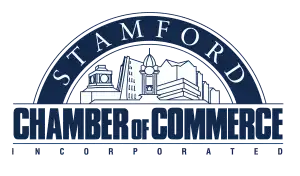Bridgeport Theft Lawyer
Theft is a somewhat unique criminal offense in Connecticut, not just because of how broadly state law defines this crime, but also because of how tricky it can be to effectively contest allegations of this nature. Moreover, people who have been convicted more than once of a Theft offense may find themselves facing increasingly harsher penalties for subsequent convictions thanks to persistent offender laws.
If you are facing an accusation of any degree of Larceny, you should strongly consider seeking immediate help from a Bridgeport theft lawyer. These cases can be extremely challenging to handle even under ideal circumstances. Defendants who try to fight their charges without support from a seasoned defense attorney, rarely get case results that suit their best interests.
What Qualifies as Larceny Under State Law?
Connecticut General Statutes (“C.G.S.”) § 53a-119 defines Larceny as someone wrongfully taking, withholding, or obtaining property belonging to someone else with the intent to deprive that lawful owner of the property’s benefits or appropriate those benefits to themselves or a third party. There are eighteen different types of crimes that fall within the umbrella of Larceny. Some of those include, but are not limited to:
- Embezzlement of funds belonging to another person or company;
- Obtaining property by extorting another person through threats of violence or some other form of harm;
- Receiving services and intentionally avoiding paying for them;
- Shoplifting merchandise from a retail store without paying the listed price; and/or
- Receiving public or private utility services without paying for them.
It is worth noting as well that Larceny committed under certain circumstances may be prosecuted as a different type of offense, often with more severe penalties attached to a conviction. For example, Robbery is defined separately under C.G.S. § 53a-133 as taking property directly from someone else’s person by using or threatening physical force. A Bridgeport Theft attorney can explain the differences between various offenses in more detail during a confidential consultation.
Misdemeanor Versus Felony Larceny Charges
There are six degrees of Larceny offenses defined in C.G.S. §§ 53a-122 through 53a-125b, Larceny in the Fourth, Fifth, and Sixth degree are considered misdemeanors and Larceny in the First, Second, and Third degree are treated as felonies. Broadly speaking, the degrees of Larceny are differentiated by the sum of the financial value of goods allegedly taken by the defendant charged with the crime.
Someone who allegedly steals between $1,000 and $2,000 worth of goods or services would typically be charged with Class A Misdemeanor Larceny in the Fourth Degree, whereas someone accused of stealing between $2,000 and $10,000 would generally face charges for Class D Felony Larceny in the Third Degree. Notably, though, Theft of certain types of property or committed through certain actions can be automatically prosecuted as felony Larceny regardless of the financial values involved. A Theft lawyer in Bridgeport can further explain in detail what this all means during an initial meeting.
Get Help From a Bridgeport Theft Attorney Today
Even if you have no criminal record, a single conviction for Theft could alter the course of your entire life. If you do have an existing record, your new offense may result in harsher punishments upon conviction than a first-time offender would.
Put all that together, and you have a situation that you should never try to handle entirely on your own. Call Mark Sherman Law to discuss your legal options with a Bridgeport theft lawyer, and see what past clients have said about our services by clicking here and scrolling through our Avvo.com profile.












